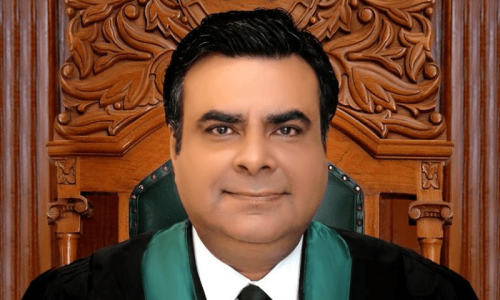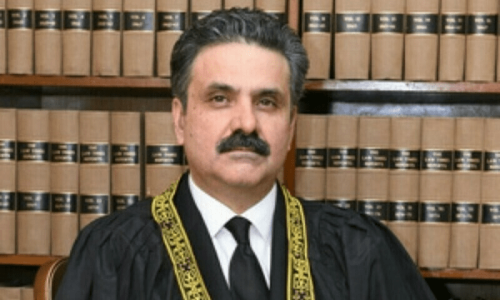ISLAMABAD: The Balochistan government withdrew on Wednesday its petition requesting the Supreme Court to consider recalling its Oct 6 order of appointing Justice Qazi Faez Isa as head of a commission to investigate the Aug 8 Quetta carnage which claimed the lives of at least 74 people, including lawyers.
Appointed by the Supreme Court on Oct 6, the Justice Isa-led judicial commission was asked to complete the investigation into the suicide attack on the Civil Hospital in a month.
In a two-page application filed through its Advocate General Amanullah Kanrani, the provincial government had requested the court to consider withdrawing the nomination of Justice Isa of the Supreme Court because the poignant letter he wrote soon after the Aug 8 incident might affect the inquiry since the judge seemed deeply affected with the “martyrdom of lawyers whom he referred to as friends”.
A three-judge SC bench headed by Chief Justice Anwar Zaheer Jamali disposed of the petition after the provincial government withdrew it.
Senior counsel Khawaja Haris, who appeared on behalf of the provincial government, argued that since the sentiments of the head of the commission were known to everybody, it might affect the sensitive probe into the incident.
But the court observed that it was its discretion to nominate anyone from the judiciary to lead a commission and said the judicial commission had been appointed in view of lack of interest on the part of the Balochistan government.
The court suggested to the provincial government to express its apprehensions before the commission, adding that the commission could also decide to conduct its proceedings in camera or to make it open if it wanted to in view of the sensitivity of the matter.
In its petition, the Balochistan government had argued that neither the precise powers to be exercised by the commission nor its terms of reference had been specified in the apex court’s order. The appropriate course to assuage the concerns and apprehensions of members of the Balochistan High Court Bar Association, it said, was to order monitoring of the investigation.
Moreover, the petition added, the provincial government had already constituted a joint team to investigate the incident and as such any parallel/contemporaneous inquiry by the commission was likely to frustrate the ongoing investigations. It may also set a precedent and seriously jeopardise the entire criminal justice system of the country.
In addition, the petition said, there was no provision in the law to confer the jurisdiction of the Supreme Court to establish or nominate a commission for holding an inquiry into an incident involving criminal offence.
The concurrent and contemporaneous conduct of investigation one the one hand and inquiry on the other might seriously prejudice, hinder, hamper and negate the principles of due process of law, the petition feared.
Published in Dawn October 20th, 2016















































Dear visitor, the comments section is undergoing an overhaul and will return soon.